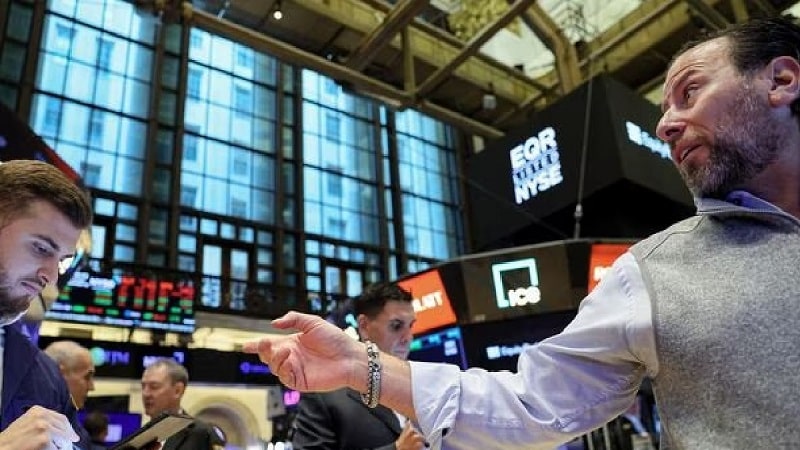Global Markets Today: Oil Prices Surge and Investors Shift Focus
In this ever-evolving world of finance, it’s crucial to stay updated on the latest market trends and events. Today, we delve into the global markets, where we witness a significant surge in oil prices and a noticeable shift in investor sentiment. The financial landscape is ever-changing, and it’s important to understand the implications of these developments.
The Surge in Oil Prices
The global oil market has experienced a substantial uptick in prices, with Brent crude futures reaching a staggering $89 per barrel and US crude futures surpassing $87 per barrel. This surge can be attributed to a reduction in oil supply, causing a ripple effect across the market.
What Caused the Increase?
The increase in oil prices can be attributed to a decrease in oil supply. This reduction can be attributed to various factors, such as geopolitical tensions, supply chain disruptions, and fluctuations in demand. As a result, oil prices have soared to levels not seen in recent times.
Stock Market Resilience
Interestingly, despite the surge in oil prices, the US stock market demonstrated resilience. US stock indices reversed earlier losses on a Monday, with the Dow Jones Industrial Average gaining 192.12 points, equivalent to 0.58%, reaching a remarkable 33,599.7. The S&P 500 also saw substantial gains, rising by 27.9 points, or 0.65%, to reach 4,336.4 points.
What Drove the Stock Market?
Several factors contributed to the stock market’s resilience. Investors appeared to be reassured by the overall health of the economy and the strength of various sectors. Additionally, positive corporate earnings reports played a pivotal role in boosting investor confidence.
Bond Market Holiday
In the United States, the bond market was closed on Monday due to Columbus Day. This holiday impacted trading in the bond market, with investors eagerly awaiting its reopening to assess any potential impacts on interest rates and bond yields.
Currency Market Movements
The currency market also witnessed notable fluctuations during this time. The US dollar experienced a slight dip against the Japanese yen, falling from 149.35 to 148.48. Similarly, the euro saw a minor decline, going from $1.0593 to $1.0566.
European Market Volatility
The European stock market faced some volatility as well, primarily due to military clashes in the Middle East. The pan-European STOXX 600 index experienced a 0.3% decrease, largely influenced by declines in the retail and travel & leisure sectors. However, European markets also saw an uptick of 2.9% in response to rising oil prices.
Asia’s Response
In Asian markets, Hong Kong’s Hang Seng index showed a modest increase of 0.2%, reaching 17,517.40. Conversely, China’s Shanghai Composite index declined by 0.4% to 3,096.92. Japan’s markets remained closed for a holiday, and New Zealand’s benchmark S&P/NZX 50 index decreased by approximately 0.7%, settling at 11,205.06. In contrast, Australia’s S&P/ASX 200 index gained 0.2%, reaching 6,970.20.
Gold Shines Amid Uncertainty
In times of market turbulence, investors often turn to safe-haven assets, and gold is no exception. Gold for December delivery saw a notable increase of $19.10, reaching $1,864.30 an ounce. This rise in gold prices reflects the uncertainty and increased demand for safe assets in the current economic climate.
Conclusion
The global financial markets are dynamic and subject to a myriad of factors that can lead to sudden changes in trends. Oil prices have surged due to supply constraints, while stock markets have displayed resilience, bolstered by positive economic indicators and corporate earnings. The bond market’s holiday has implications for future interest rates, and the currency market continues to fluctuate in response to global events. As we navigate these complex dynamics, gold remains a reliable refuge for investors seeking stability in uncertain times.
Stay informed and tuned in for more updates as the financial world continues to evolve.
FAQs
1. Why did oil prices surge?
Oil prices surged due to a decrease in oil supply caused by various factors, including geopolitical tensions and supply chain disruptions.
2. What drove the resilience of the US stock market?
Positive corporate earnings reports and confidence in the overall health of the economy contributed to the stock market’s resilience.
3. Why was the bond market closed on Columbus Day?
The bond market was closed on Columbus Day, impacting trading in this sector. Investors awaited its reopening to assess potential effects on interest rates.
4. How did the currency market react to global events?
The currency market experienced fluctuations, with the US dollar and euro showing minor declines. Geopolitical tensions and economic uncertainties influenced these movements.
5. Why did gold prices rise?
Gold prices rose as investors sought safe-haven assets in response to market turbulence and uncertainty in the global economy.











